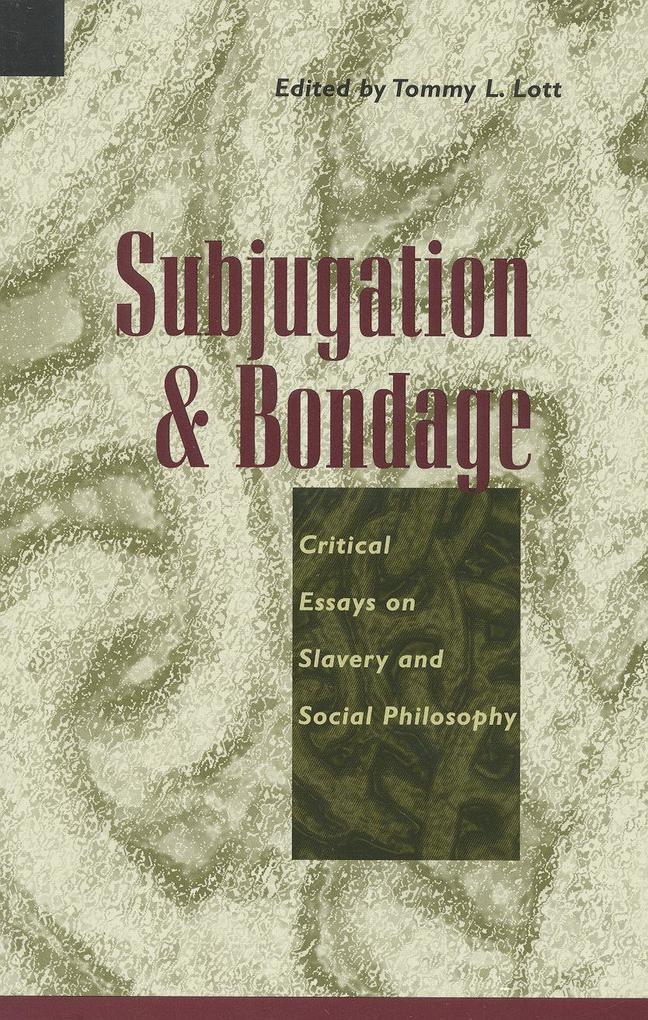
Zustellung: Di, 05.08. - Mo, 11.08.
Versand in 3-4 Wochen
VersandkostenfreiThis volume addresses a wide variety of moral concerns regarding slavery as an institutionalized social practice. By considering the slave's critical appropriation of the natural rights doctrine, the ambiguous implications of various notions of consent and liberty are examined. The authors assume that, although slavery is undoubtedly an evil social practice, its moral assessment stands in need of a more nuanced treatment. They address the question of what is wrong with slavery by critically examining, and in some cases endorsing, certain principles derived from communitarianism, paternalism, utilitarianism, and jurisprudence.
Inhaltsverzeichnis
Chapter 1 Foreword Chapter 2 Acknowledgments Chapter 3 Necessary Identities Chapter 4 Radical Implications of Locke's Moral Theory: The Views of Frederick Douglass Chapter 5 "... The Same Tyrannical Principle": Locke's Legacy on Slavery Chapter 6 "The Master's Tools": Abolitionist Arguments of Equiano and Cugoano Chapter 7 Early Enlightenment Conceptions of the Rights of Slaves Chapter 8 Locke and the Legal Obligations of Black Americans Chapter 9 The Master-Slave Dialectic: Hegel vs. Douglass Chapter 10 Slavery and the Ties that Do Not Bind Chapter 11 Paternalism and Slavery Chapter 12 What Is Wrong with Slavery Chapter 13 Slavery and Surrogacy Chapter 14 American Slavery and the Holocaust: Their Ideologies Compared Chapter 15 The Arc of the Moral Universe Chapter 16 Bibliography Chapter 17 Index Chapter 18 Contributors
Produktdetails
Erscheinungsdatum
15. Januar 1998
Sprache
englisch
Seitenanzahl
288
Herausgegeben von
Tommy L Lott
Verlag/Hersteller
Produktart
gebunden
Gewicht
680 g
Größe (L/B/H)
233/151/26 mm
ISBN
9780847687770
Entdecken Sie mehr
Pressestimmen
Accessible, interesting, challenging, and solid, to be used in a variety of courses with no sacrifice of quality or rigor. All in all, Tommy L. Lott has done the discipline a service by putting together this fine book. -- Jeffrey Crawford, philosophy department, Central State University, Wilberforce, Ohio Teaching Philosophy
Bewertungen
0 Bewertungen
Es wurden noch keine Bewertungen abgegeben. Schreiben Sie die erste Bewertung zu "Subjugation and Bondage" und helfen Sie damit anderen bei der Kaufentscheidung.







